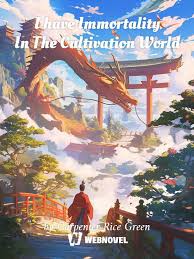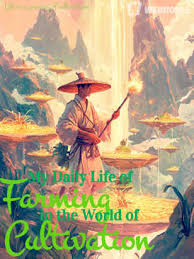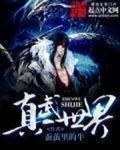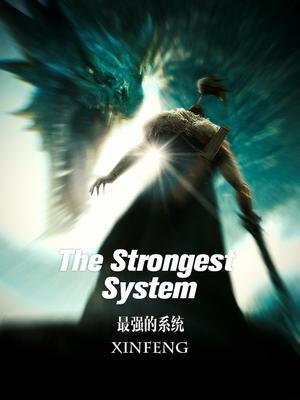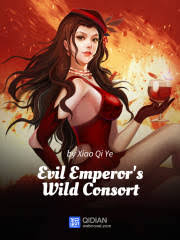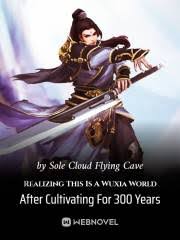The Story in 3 Sentences
Zhou Yi awakens as a lowly prison guard in the Heaven Dungeon, granted immortality through a Fruit of Eternal Life but stripped of any combat prowess or divine protection in a ruthless cultivation world teeming with monsters, scheming sects, and power-hungry immortals.
Rather than chase glory or confrontation, he chooses survival through silence, retreating into the shadows for centuries and millennia while quietly observing the rise and fall of empires, disciples, and even his own forgotten companions.
Over thousands of years, the boy he once freed becomes the founder of the Great Qian Empire, the teen he guided evolves into a celestial elder, and his childhood pet ascends as the Absolute Demon King—until Zhou Yi, the eternal witness, is finally recognized not as a bystander but as the Supreme Celestial of Eternal Life.
Why It Stands Out
1. The Immortal Hermit Archetype Reimagined
Unlike typical xianxia protagonists who dominate through brute force or divine inheritance, Zhou Yi survives by restraint. His immortality isn’t a weapon but a burden that forces patience, observation, and strategic withdrawal. This inversion of the “strongest from the start” trope grounds the story in psychological realism—eternal life isn’t glamorous when everyone you know turns to dust.
2. Time as the True Antagonist and Ally
The novel treats time not as a backdrop but as the central narrative engine. Civilizations bloom and collapse between chapters. Cultivation sects rise from obscurity and vanish into myth. Zhou Yi’s journey isn’t about defeating a final boss but enduring epochs, making the reader feel the weight of centuries through cultural shifts, linguistic evolutions, and the haunting recurrence of history.
3. A Cultivation World That Breathes
Instead of focusing solely on battles or breakthroughs, the story immerses readers in the texture of a living world—political intrigue in the Great Qian Empire, theological debates among celestial elders, folk rituals in remote villages. Zhou Yi’s passive role allows the setting itself to become the protagonist, with the cultivation world unfolding like a historical epic witnessed through one man’s unblinking eyes.
Characters That Leave a Mark
There’s Xiao Tiezhu – the once-humble blacksmith’s son Zhou Yi casually helped centuries ago, who returns as a fire-wielding powerhouse wielding the Divine Fire Fan, repaying his ancient debt with unwavering loyalty and explosive force during the Kunlun Cave Heaven crisis.
You’ll meet the descendants of the Bai Family, who carry ancestral memories of Zhou Yi’s quiet kindness and become key players in preserving cultural continuity across dynastic collapses, bridging mortal governance with celestial law in the later eras of the Great Qian Empire.
And the Absolute Demon King? They’re the one who began as Zhou Yi’s pet thousands of years prior, growing from a playful creature into a feared sovereign of foreign lands, yet never forgetting the mortal who once fed and sheltered them—ultimately kneeling not out of fear, but filial reverence.
The Flaws Fans Debate
Some readers criticize the pacing, noting that the first 40 chapters feel slow and fragmented as Zhou Yi drifts through minor encounters without clear direction.
Others point to occasional translation inconsistencies, where Chinese terms appear untranslated or awkwardly rendered, momentarily breaking immersion despite otherwise strong prose.
A recurring critique is the MC’s extreme passivity—while intentional, it can make early arcs feel observational rather than engaging, especially for fans expecting active cultivation progression or interpersonal drama.
Must-Experience Arcs
Ch. 1–40: Heaven Dungeon Beginnings – Zhou Yi’s quiet survival as a prison guard, his discovery of the Fruit of Eternal Life, and his first cautious steps into cultivation while avoiding the notice of dangerous inmates and sect enforcers.
Ch. 120–180: Tiezhu Repays a Favor – Xiao Tiezhu reappears as a formidable cultivator, aiding Zhou Yi during a sect-wide crisis involving cursed artifacts and demonic invasions, marking the first time Zhou Yi’s past kindness yields tangible protection.
Ch. 597–627: The Era of Tianshun – In the novel’s final stretch, Zhou Yi’s influence permeates the Great Qian Empire’s cultural and spiritual foundation; the Absolute Demon King returns, and Zhou Yi is formally acknowledged as the Supreme Celestial, not through conquest, but through the accumulated weight of time and legacy.
Killer Quotes
“Perfect! Let’s set a small goal, to live in this Heavenly Prison for a few hundred years!”
“Eternal life makes you a hermit by default because all those you care about will die and leave you alone.”
“In a world where a father kills his child for talent, survival isn’t cowardice—it’s wisdom.”
Cultural Impact
The novel sparked widespread discussion on r/xianxia and Webnovel forums for its subversion of the overpowered MC trope, with fans praising its “immortal slice-of-life” approach.
Memes comparing Zhou Yi to a “background NPC who outlives the entire game” went viral in cultivation communities, highlighting his role as the ultimate observer.
It gained traction as a “slow-burn antidote” to fast-paced system novels, with readers citing its philosophical depth and realistic portrayal of longevity’s emotional cost.
Final Verdict
Start Here If You Want:
A refreshing take on immortality that prioritizes patience over power and legacy over dominance.
A protagonist who wins by not playing the game, yet shapes the board through sheer endurance.
A cultivation epic that feels like reading centuries of history through the eyes of one quiet, undying man.
Study If You Love:
Narratives that explore the psychological and sociological implications of extreme longevity.
Worldbuilding where institutions, not individuals, drive historical change.
Eastern fantasy that blends Taoist philosophy with political realism across dynastic cycles.
Avoid If You Prefer:
Fast-paced action or constant power escalation in every chapter.
Protagonists who actively seek conflict, romance, or empire-building.
Stories requiring clear-cut villains or linear hero’s journeys—this is a meditation on time, not a war saga.
